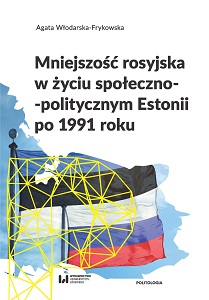Mniejszość rosyjska w życiu społeczno-politycznym Estonii po 1991 roku
Russian Minority in Social and Political Life of Estonia after 1991
Author(s): Agata Włodarska-Frykowska
Subject(s): Politics / Political Sciences, Politics, History, Political history, Social history
Published by: Wydawnictwo Uniwersytetu Łódzkiego
Keywords: Estonia; Russian Federation; Baltic Republics; the Russian minority in Estonia
Summary/Abstract: After the collapse of the USSR, the issue of national minorities became a very difficult and complex problem for the Baltic Republics. During the soviet times Estonia, Latvia and Lithuania were considered as interesting areas to settle in for Russian-speakers. A massive migration into these areas resulted in changes in the demographic structure of the Estonian, Lithuanian and Latvian societies. The beginning of 90s 20th century opened a new chapter for the Baltic States. It was a time of the system and society transformation where the process of inclusion and integration was seen to be undoubtedly important. Analysis of the criterion of ethnicity indicates that Lithuania is the most homogeneous country among the Baltic republics with two dominant national groups Poles and Russians, representing 6.8% and 5.6% of the population of the Lithuania society. In Latvia and Estonia, the social structure is much more strongly differentiated, national minorities create more than 30% of the population of these countries, Russians are the dominant minority group. The book examines the case of Estonia and the position of Russians living there, their relations with ethnic Estonians, system of education, religion and participation in social and political life of the state. The Estonian government takes many actions to strengthen the process of integration in the state. The naturalization process and granting the citizenship were often difficult to implement due to the inadequate language skills of many Russians living in the area. A good command of Estonian language is an essential factor that allows for better integration with the society. Russians living in Estonia are supposed to be equally involved in social and political life of the state. The potential of all residents has to be effectively and considerably used, especially when the number of population is decreasing. The position of Russians in Estonia is a major domestic and bilateral issue in the relations with the Russian Federation.
- E-ISBN-13: 978-83-8142-009-9
- Print-ISBN-13: 978-83-8142-008-2
- Page Count: 286
- Publication Year: 2017
- Language: Polish
- Introduction
- eBook-PDF
- Table of Content

